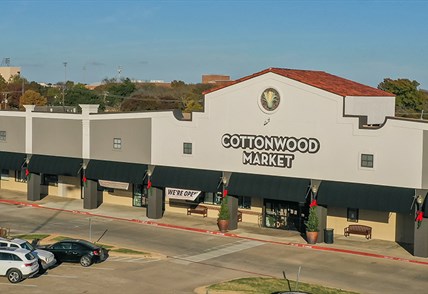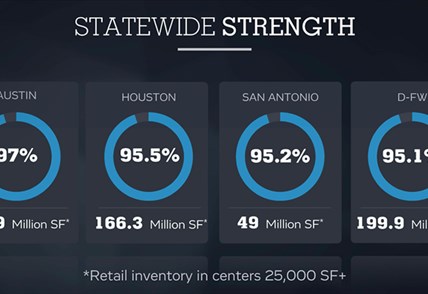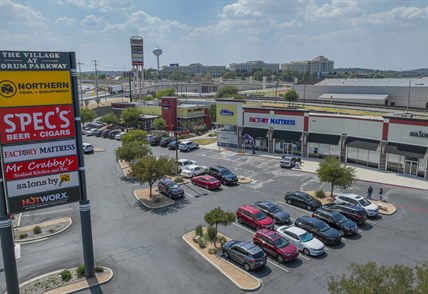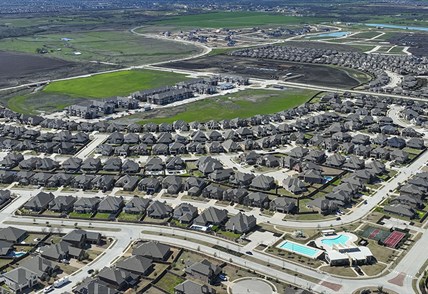Houston’s retail market as of year-end 2018 reports an occupancy rate of 94.0 percent, a healthy rate that remains in line with the year-end 2017 rate of 95.0 percent rate, despite a number of store closings from junior anchors and anchors.
Strong leasing in existing centers, as well as new construction that opened significantly leased, helped lessen the impact of the newly vacant stores, largely from failed or struggling outmoded legacy retailers like Toys “R” Us and Sears.
Despite some softening during 2018, the occupancy rate remains one of the highest on record for the market and is considered extremely healthy, even with hundreds of thousands of vacant square feet left behind by closed stores.
Toys “R” Us closed 18 stores for a total of nearly 675,000 square feet of space, or about 0.4 percent of the market inventory;
Sears closed its 200,000-square-foot Memorial City Mall store and its 152,000-square-foot store at San Jacinto Mall. The stores are likely to be redeveloped, but the retailer’s bankruptcy could delay any re-tenanting and redevelopment plans;
Grocery store Randalls closed seven stores in 2018, although nearly half of the locations already have been leased.
Fortunately, Houston has a great track record of finding new tenancy for retail vacancies, especially in light of healthy demand and limited new retail construction.
Examples of backfilled retail real estate during 2018 included:
• Nordstrom Rack, which in the first quarter of 2018 opened in a 27,252-square-foot space in Portofino Shopping Center, located on IH-45;
• El Rancho Supermercado, which backfilled a 47,000-square-foot former furniture store vacancy at 11210 North Freeway for its first Houston-area location. El Rancho opened two new stores in former Randalls locations that closed in Garden Oaks and Stafford during the first half of 2018. Additionally, El Rancho is taking a Randalls that closed in December 2018 at North Fry and Morton Roads in Katy;
• Life Time Athletic, which in 2019 will open an approximately 89,000-square-foot facility in the former Houston City Club in Greenway Plaza;
• Kids Empire, an expanding children’s indoor activity center, which backfilled approximately 9,500 square feet of existing space in The Gardens Center, located at IH-45 North and Barren Springs Drive;
• Megacenter Willowbrook, designed for flex, self-storage and other uses, a 236,000-square-foot project that represents the redevelopment of a former Walmart Supercenter at 7075 FM 1960 near Willowbrook Mall. The redevelopment will also include a 114,000-square-foot fitness facility;
• Total Wine, which opened a 24,500-square-foot store at 7640 Cypress Creek Parkway in Pearland in late 2018. Total Wine’s location occupies a portion of a former Kohl’s department store;
• Gander Outdoors, which took an 87,596-square-foot vacancy at 19302 IH-45 that was previously occupied by Gander Mountain, which closed stores after it filed for Chapter 11 bankruptcy protection in 2017;
• Duluth Trading Co., a retailer of casual and workwear, which leased existing space at Baybrook Mall in Friendswood, as well as space in Katy Ranch Crossing in Katy, for its first Houston-area stores;
• Star Furniture & Mattresses, which will open a store in 2019 in a 70,000-square-foot former Randalls that closed in mid-2018;
• Urban Air Adventure Park, which backfilled a former 100,000-square-foot Home Depot located at 20251 Gulf Freeway in Webster. The concept will open at the site in 2019;
• El Ahorro, a specialty grocer, which took the space at Airline Drive and Parker Road that was vacated by Kroger in 2017;
• Aldi, which leased a former Hancock Fabrics store at El Camino Real and Bay Area Boulevard in the Clear Lake market. Aldi also took space in Garden Oaks Shopping Center, a renovation project at North Shepherd at 38th Street;
• Gordmans, a discount department store concept operated by Stage Stores, which entered the Houston market with three locations, in Rosenberg, Spring and Atascocita (Humble). The Houston-area stores average approximately 27,000 square feet each;
• The former Sears Midtown, which closed in January 2018 and was quickly acquired for the site of the main campus of Houston’s innovation district;
• Urban Air Adventure Park, which leased 37,000-square-feet in the Sam Moon Center at 17943 IH-45 S. The space was formerly occupied by two Sam Moon concepts;
• Salons by JC, which is in the works to backfill a portion of a 25,7000-square-foot former Whole Foods at 11145 Westheimer Road in the Westchase District. The old Whole Foods was vacated when the store moved to a larger location across the street in 2016;
• A mixed-use development with approximately 45,000 square feet of retail space, which is planned for the site of a vacant Toys “R” Us building off of IH-10, just east of Bunker Hill. Completion is set for the second half of 2019;
• Sixty Vines, a popular Dallas-based restaurant, which leased an 8,703-square-foot space formerly occupied by Gymboree at 2540 University Boulevard;
• Flying Biscuit Café, which is opening new Houston-area locations, including one in backfilled space in Memorial City, as well as one in 2850 Fannin, a new high-rise residential development in Midtown;
• Snooze, An A.M. Eatery, with new area locations opening at 5000 Westheimer in Houston in space formerly occupied by Arcodoro and at 245 Research Forest Drive in The Woodlands in space formerly occupied by Corner Bakery;
• A number of destination restaurants, including Nobu, Fig & Olive, Musaafer, Spice Route and Blanco Tacos + Tequila, in the multi-tenant redevelopment of the former Saks Fifth Avenue at The Galleria;
• The Outlet at West Oaks, which replaced the 243,337-square-foot former Macy’s at West Oaks Mall with an outlet concept;
In terms of new space in new and expanded projects, the Houston-area retail market added approximately 2.7 million square feet of retail space. The new construction brings Houston’s retail market inventory to approximately 160.5 million square feet.
The 2018 construction is on par with the 2.7 million square feet that opened in 2017, although both years represent a decline from the market’s recent high of 3.4 million square feet added in 2016. The market considers conservative, demand-based construction as a key way to keep supply and demand in balance.
GROCERS, ENTERTAINMENT, MIXED-USE PROJECTS DRIVE NEW CONSTRUCTION
For 2018, new space brought online a number of projects anchored by grocers and large-format entertainment or fitness concepts, as well as retail space in new and redeveloped mixed-use projects. Construction in 2019 also should remain active, but total new-space deliveries are likely to decline compared to 2018.




